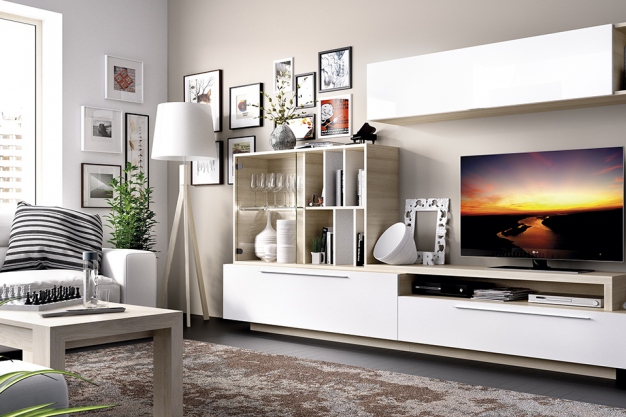Introduction
Your HVAC system is responsible for keeping your home comfortable year-round. It’s important to choose the right system for your home to ensure you have efficient heating and cooling, as well as good air quality. The right system can save you money on energy bills, while the wrong one can lead to high energy costs and poor indoor air quality.
Types of HVAC Systems
There are four main types of HVAC systems to consider: split, hybrid, ductless mini-split, and packaged heating and air systems.
Split System
A split system is the most common type of HVAC system found in homes. It consists of two main components: an outdoor unit that houses the compressor and an indoor unit that houses the evaporator coil. The two units are connected by refrigerant lines and an electrical cable. This system is best for homes with existing ductwork.
Hybrid System
A hybrid system combines an electric heat pump with a gas furnace. It’s a great option for areas with moderate to cold winters. The heat pump provides efficient heating and cooling during mild weather, while the gas furnace kicks in during colder weather to provide additional heat.
Ductless Mini-Split System
A ductless mini-split system, as the name suggests, doesn’t require ductwork to distribute air. It consists of an outdoor unit and one or more indoor units. This system is ideal for homes without existing ductwork or for home additions.
Packaged Heating and Air System
A packaged heating and air system is an all-in-one unit that contains both the heating and cooling components in one cabinet. This system is best for homes without a lot of space for separate heating and cooling components.
Factors to Consider
There are several factors to consider when choosing the right HVAC system for your home.
Size of Your Home
The size of your home is an important factor to consider when choosing an HVAC system. A system that’s too small won’t be able to keep your home comfortable, while a system that’s too large will waste energy and lead to high energy bills. A professional HVAC contractor can help you determine the right size for your home.
Energy Efficiency
Energy efficiency is another important factor to consider. A more efficient system will save you money on energy bills over time. Look for systems with high SEER (Seasonal Energy Efficiency Ratio) ratings for cooling and high AFUE (Annual Fuel Utilization Efficiency) ratings for heating.
Budget
Your budget is another important factor to consider. HVAC systems can be expensive, but it’s important to invest in a quality system that will last for many years. Consider financing options if you need to spread out the cost.
Maintenance
Maintenance is an important factor to consider as well. Regular maintenance will keep your system running efficiently and extend its lifespan. Consider the maintenance requirements of each system before making a decision.
Choosing the Right HVAC System
Now that you understand the different types of HVAC systems and the factors to consider, it’s time to choose the right system for your home. Here are some steps to take:
- Determine your heating and cooling needs: Consider the climate in your area and your family’s heating and cooling preferences.
- Calculate the right size system: Use a sizing calculator or consult with a professional HVAC contractor to determine the right size system for your home.
- Compare energy efficiency ratings: Look for systems with high SEER and AFUE ratings to save money on energy bills.
- Consider your budget: Choose a system that fits within your budget, but don’t compromise on quality.
- Research maintenance requirements: Consider the maintenance requirements of each system and choose one that fits your lifestyle.
- Consult with a professional HVAC contractor: A professional can help you make an informed decision and install the system properly.
Conclusion
Choosing the right HVAC system for your home is an important decision. Consider the size of your home, your energy efficiency needs, your budget, and maintenance requirements when making your decision. Consulting with a professional HVAC contractor can help you make an informed decision and ensure that your system is installed properly.





